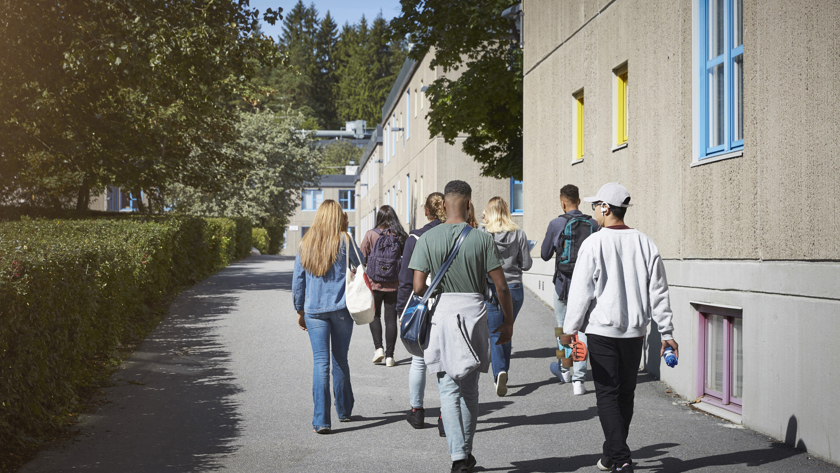
What is honour-based crime?
Honour-based violence and oppression is a type of crime that aims to maintain collective norms and values about concepts such as honour, dishonour, shame and shamelessness. In these contexts, ‘honour’ represents the individual man’s value and right to respect.
In an honour context, a man’s honour is determined by his ability to control the bodies, behaviours and sexualities of the women around him. If one of these women contravenes the ideals and values that exist within the group’s honour context, this brings dishonour to the man in question. Honour-based violence and oppression is carried out to preserve or reinstate the honour that has been questioned or insulted. The group can consist of a family, relatives, clan or other similar group.
The concept of honour
In many contexts, honour is regarded as something positive. In individualistic societies, honour is associated with qualities such as honesty, integrity and uprightness. These are qualities that all individuals in society can have. Everyone can therefore also have honour in a society that is based on individuality. In collectivist societies, however, it is only men that are ascribed honour. Women should feel shame regarding their bodies in order for the men around them to have honour. In other words, shame is a norm in honour culture.
Norms within honour culture
Honour norms also include the perception that the family’s reputation and standing are dependent on female family members’ actual or alleged behaviour, and how well they comply with what is regarded as acceptable in accordance with the ideals of innocence and chastity that prevail within the honour culture. These ideals mean that unmarried girls and women are expected to wait until they are married before having sex, while married girls and women are expected to avoid sexual relationships outside their marriage.
I feel confined. I previously had a boyfriend who I really loved. They ruined everything for me. I'm never allowed to see him again.
From Save the Children Sweden's report "Allt jag inte får göra"Power and control
Power and control are central aspects of honour-based oppression. Oppression is expressed through restrictions, illegal threats, emotional blackmail, degradation and various forms of violations. There is often a fine line between what constitutes oppression and what constitutes mental violence, for example.
Honour-based oppression aims to control relatives, to prevent them from behaving in a manner that risks violating the honour of a man, the family, relatives or the collective. Honour-based oppression is thus a way of exerting power.
In an honour context, oppression often means parents deciding on almost every aspect of their children’s lives. This could involve how the children can dress, who they can spend time with, what education they receive and which leisure activities they can take part in. It could also involve things such as physical and social separation of girls and boys, and of women and men, both at home and at preschool, at school and during leisure time.
In an honour context, oppression can also be expressed through a group member being frozen out from the community and ignored. They may be called insulting things such as ‘retarded’, ‘slut’ or ‘unwanted’. However, it can also involve various types of threats, for example other people in the group making life unbearable for the victim.
State Parties shall ensure that children who are capable of forming their own opinions have the right to express these freely in connection with all issues that affect them. The child’s opinions shall be ascribed importance in relation to the child’s age and maturity.
The situation is often different depending on gender. Girls and women are usually controlled more strictly, and are more limited than boys and men in an honour context.
Oppression can consist of children being married off, for example, or an adult being forced or tricked into marriage against their will. It can also involve girls and women not being able to spend time with boys and men, or them always having to have a male companion when they are outside the home.
A person can be subjected to honour-based oppression as a punishment for having behaved in an undesired manner. Other members of the collective may then pretend that the victim does not exist. The victim may also be frozen out or called offensive names.
Honour-based oppression can also be carried out by forcing someone to expose another family member or relative to oppression, for example a son in the family being forced to control and restrict his sisters. In such cases, both the son and the daughters in the family are victims of different forms of honour-based oppression.

Restrictions
Children and young people often live with different forms of restrictions. Boundaries are set by the adult world, and children and young people are expected to follow the rules. Guardians have a right to set boundaries and to decide on various issues that affect their children. However, children and young people also have a right to influence and involvement in matters that affect them.
Children’s opportunities to influence their own lives should increase with their age and maturity. For children and young people who live in an honour context, it is instead common that the older the child is, the more their scope for living their lives is restricted – particularly for girls, who often experience a significant reduction in their freedom when menstruation begins.
It can be hard to know where to draw the line between acceptable exercise of parental responsibility and violations of children’s and young people’s fundamental freedoms and rights. The restrictions that parents impose on their children are not always justified. These restrictions may involve parents exerting control over their children in a manner that violates their right to be involved in making decisions about their own lives.
I really want to go swimming with my friends. To feel that I’m like everyone else. But I don’t even have a swimming costume or a bikini.
From Save the Children Sweden's report "Allt jag inte får göra"Children are bearers of rights, even if they do not have the same independence as adults. Children’s right to participation is an expression of the legal and social status that children have within society. Children’s right to be heard and to participate in all decision-making processes related to their lives is one of the fundamental values of the Convention on the Rights of the Child. Adults should take into account children’s right to be involved in all issues relating to children’s rights.
Children and young people who live with honour oppression are often not allowed to spend as much time with their friends as their peers are. They may also be restricted in terms of the places they can visit in their free time, the teaching they can attend and the way they dress.
For children and young people who belong to a particularly vulnerable group, such as those with disabilities or those who identify as LGBTQI, the situation can be even more difficult. For example, the level of control may increase as the family discovers their vulnerability, for example in relation to their sexual orientation.
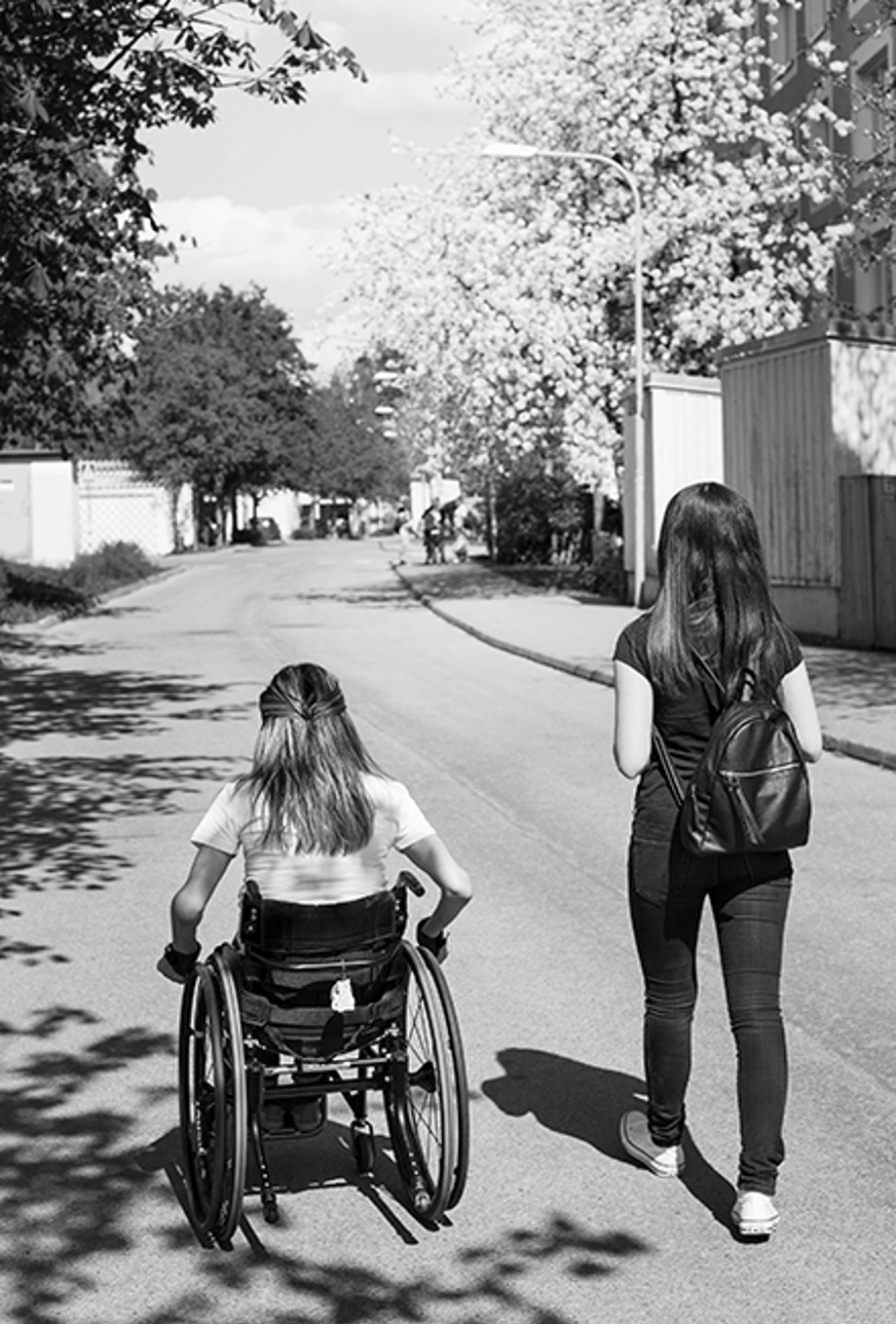
Violence
Honour-based violence may consist of physical, mental, material, sexual or symbolic violence, or a combination of these different forms.
Physical violence
Physical violence mainly refers to various forms of abuse in which the victim is subjected to pain or physical injury. This violence can include kicking, hitting, burning, pulling hair and acid attacks.
It is not unusual for physical violence in an honour context to include ritual elements such as forced shaving, mutilation of various parts of the body or disfiguring the victim through assaults such as acid attacks. Another ritual element involves inflicting violence using objects that are associated with impurity, such as brooms, shoe horns or slippers.
The aim of these ritual elements is to exclude the victim from the community of the collective, and to absolve the perpetrator of moral responsibility for their actions.
Mental violence
Mental violence often consists of abusive insults and nicknames, such as ‘whore’, ‘retarded’, ‘worthless’ or ‘unwanted’. However, it can also involve cross-examination, various forms of degradation and contempt, exclusion from the community and threatening the use of various punishments.
Actions that can be classed as mental violence often overlap with oppressive behaviour, such as humiliating or controlling the victim with threats of punishment.
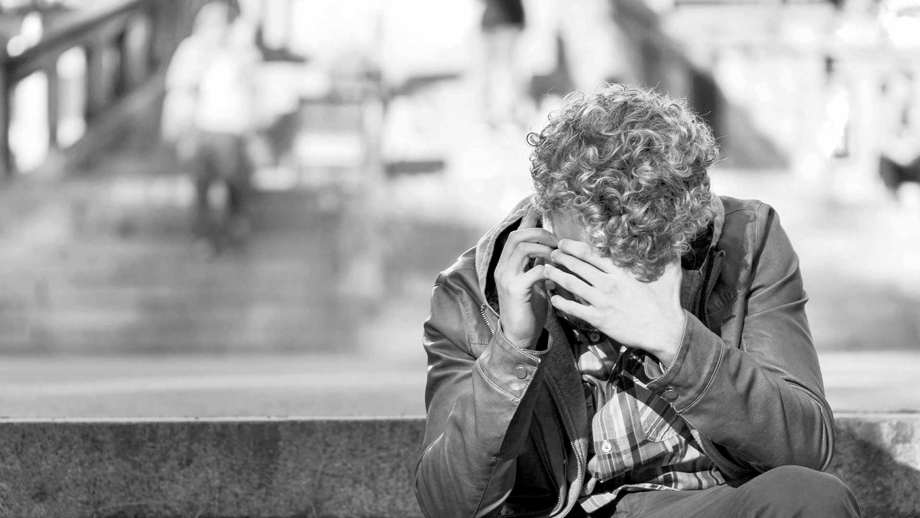
Material violence
Material violence, or economic violence, can include both direct restrictions, in other words not allowing the victim to manage their own money, and financial blackmail. Financial blackmail can involve the perpetrator forcing the victim to give them money in return for not telling the victim’s family or relatives that they have done something that threatens to bring shame on them.
Sexual violence
Rape, incest, virginity checks, genital mutilation, genital cutting and sexual abuse are examples of sexual violence that can occur in an honour context. Child marriage and forced marriage are often associated with sexual violence.
Sexual violence can be particularly problematic in an honour context, because it can have two sides. The victim is sexually abused, while at the same risking further punishment if their family, their relatives or the collective in which they live find out about the abuse.
Symbolic violence
Examples of symbolic violence include various forms of harm, such as destroying someone’s possessions or harming their pets. These acts are often very similar to the ritual elements that may be part of physical violence in an honour context.
Honour oppression is a crime
On 1 June 2022, honour oppression became a crime in Sweden. Honour oppression is a collective term for various criminal actions committed with the aim of preserving or restoring the honour of an individual, a family, relatives or a similar group. If someone has committed certain types of crimes and their actions have been part of a repeated violation of the victim’s integrity and have been likely to seriously harm the victim’s self-esteem, the offender can be sentenced to imprisonment for a minimum of one year and a maximum of six years, provided that the crimes have been committed with an honour-based motivation.
Not all crimes are covered by the provision on honour oppression. The criminal actions that may constitute honour oppression are restricted to a list in the penalty provision contained in Chapter 4, § 4e of the Swedish Penal Code. This involves crimes in accordance with Chapters 3, 4, 6 and 12 or Chapter 5, § 1 or § 2 of the Swedish Penal Code, and crimes detailed in § 24 of the Swedish Restraining Orders Act (1988:688). These offences may include assault, unlawful threats, sexual harassment and criminal damage, as well as breaching restraining orders.
For example, the crime of honour-based oppression means that someone who has subjected another person to minor assault, unlawful threats and mistreatment can be sentenced to a more severe penalty under the honour-based oppression provision if there is an honour motive behind the crime.
The new offence will be applied in cases of repeated violations and where the acts are systematic. However, it is not the intention that the most serious crimes – such as murder, rape and female genital mutilation – should be included in the offence of honour-based oppression. More serious offences will be dealt with separately, as is the case for gross violations of integrity and gross violations of a woman’s integrity. Offenders can thus be prosecuted for both honour crimes, i.e. less serious crimes committed systematically and with an honour motive, and rape, for example. In the case of more serious offences, the previously introduced punishment basis for crimes with an honour motive can also be applied and the overall penalty increased.
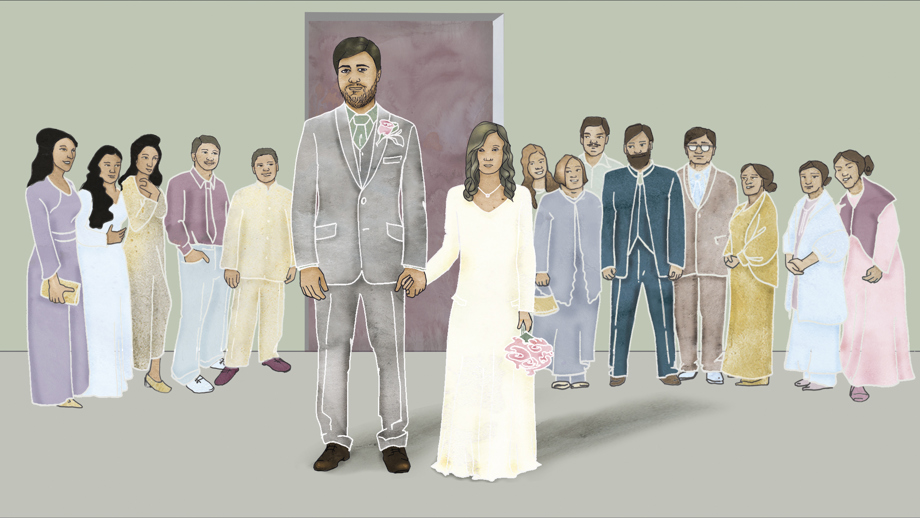
Forced marriage and child marriage crimes
Swedish law prohibits forcing another person to enter into marriage or a marriage-like relationship. The offence is called forced marriage, and can lead to imprisonment for up to four years.
Since 1 July 2020, child marriage has also been completely banned in Sweden. Marriage or a marriage-like relationship with a person under the age of 18 is therefore illegal in Sweden, regardless of whether the relationship was entered into in Sweden or abroad. It is not the child who commits a crime, but the person who induces or allows the child to enter into marriage or a similar relationship. Anyone who marries a child or plans a wedding for a child is also guilty of a crime. The offence is called child marriage crime, and can lead to imprisonment for up to four years.
Female genital mutilation
It is forbidden under Swedish law to perform an operation on the external female genitalia with the aim of mutilating or causing other permanent changes to the victim’s genitals. It does not matter whether or not the victim consents to the procedure.
Female genital mutilation – or FGM – is a practice that can cause great harm to the victim. One of the purposes of genital mutilation is to control the sexuality of girls and women, and to make them associate sex with pain and shame. The procedure is often performed without anaesthetic.
There are different types, or degrees, of FGM. The least invasive type involves the partial or complete removal of the clitoris or the foreskin of the clitoris. The second type also involves the partial or complete removal of the labia. The third type is called infibulation, and involves cutting off all the external genitalia and then sewing the tissue around it together, leaving only a small hole for urine and menstrual blood.
There are also other harmful procedures that are classed as FGM, consisting of various forms of cutting, scraping, burning or pricking.
Genital mutilation usually takes place before the victim becomes sexually active. It is therefore not uncommon for children to be victims. There is no medical justification for performing genital mutilation on girls and women.
Other expressions of violence and oppression
Honour-based violence and oppression can take many different forms. In addition to forced marriage and genital mutilation, there are various types of threats and violence, as well as oppression in the form of various kinds of pressure.
Conversion attempts
For LGBTQ people living in an honour context, oppression can take the form of pressure to live according to a different gender identity or sexual orientation that with which the person actually identifies. Conversion attempts may involve family members or relatives selecting what they see as a suitable partner of the opposite sex, or prohibiting the victim from dressing in a certain way or associating in certain circles.
‘Rehabilitation trips’
One particular form of honour-based oppression, so-called ‘rehabilitation trips’, is used to control children and young people who do not live according to the norms of their family or relatives. The family, or some other group, decides that a child or young person should be sent to the country of their parents’ origin, for example, and live there with relatives or other members of the collective who can bring up the young person in accordance with the values of the collective.
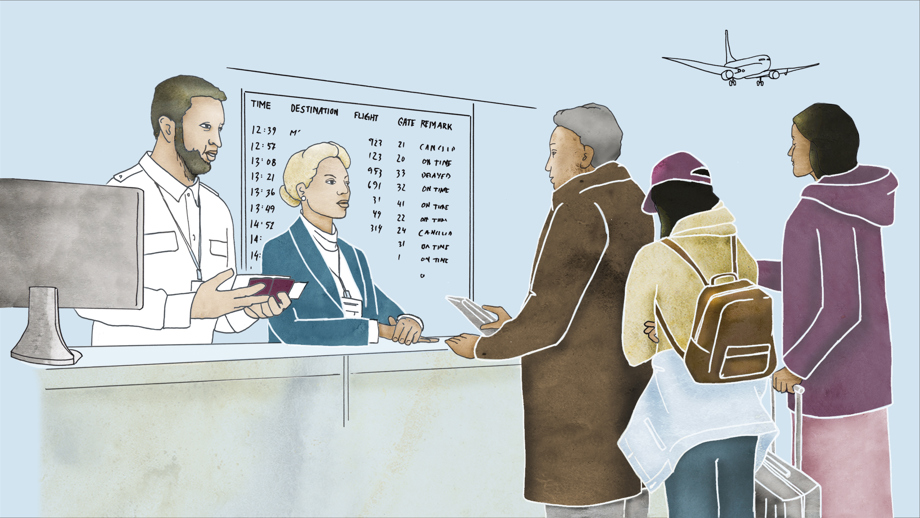
Outward travel bans
In order to prevent children from being taken abroad to be subjected to child marriage or genital mutilation, a child may be banned from leaving the country.
The social welfare committee can apply for an outward travel ban for a child if there is a clear risk that the child will be taken abroad or leave Sweden for the purpose of marriage or a marriage-like relationship, or to be subjected to genital mutilation. Applications are made to the administrative court.
In urgent cases, the social welfare committee can decide on a temporary restraining order and then notify the administrative court, which will decide whether the restraining order should be imposed.
Once an outward travel ban has been issued, it should be reviewed at regular intervals to assess whether there is still a need for the ban. When there is no longer a risk to the child, the ban should be lifted.
An outward travel ban does not need to be combined with taking the child into care or any other measure under the Swedish Care of Young Persons (Special Provisions) Act (1990:52).
Honour motives as a stricter punishment basis
Since 1 July 2020, Sweden has had a stricter punishment basis for crimes committed with an honour motive. This means that when the courts decide on an offender’s punishment, the question of whether the motive for the offence was to preserve or restore the honour of a person, a family, a family group or another similar group must be taken into account. If there is an honour motive, this constitutes an aggravating circumstance which should lead to a more severe penalty than would otherwise have been the case for the offence.
In order for the courts to increase the penalty for an offence, it is enough for one of the motives behind the offence to relate to honour. Preserving or restoring honour need not therefore have been the sole or main motive for the offence.
One difference between the aggravating circumstance and the new offence of honour-based oppression is that creating the new offence enables the police and prosecutors to investigate crimes where honour has been a motive more effectively. The specific offence ensures that the question of whether there was an honour motive behind the crime is considered throughout the investigation, and is documented.
Deportation due to a crime
A person who commits an honour-based crime risks punishment in accordance with what is specified for the crime they are culpable of. For forced marriage or child marriage offences, the penalty is imprisonment for up to four years. For the offence of deception for the purpose of marriage abroad, the penalty is imprisonment for up to two years. For the new offence of honour oppression, the penalty is imprisonment for a minimum of one year and a maximum of six years. In the case of the offence of genital mutilation, the length of the sentence varies depending on whether it is a minor offence, a regular offence or a gross offence. In the case of a gross offence, the penalty can be up to ten years in prison.
If the offender is a foreigner who is not a resident of the EEA, they may be deported from Sweden. Deportation is possible if the person is convicted of an offence that can lead to imprisonment. A foreigner who is convicted of an honour-based crime therefore also risks being deported from Sweden.
When assessing whether a foreigner who has committed a crime should be deported, the court must take into account the person’s links to Swedish society. The court must also take into account whether the accused will suffer any disadvantage as a result of being deported from Sweden for the offence. This means that the court may impose a more lenient sentence than that prescribed for the offence if there are special grounds for doing so.